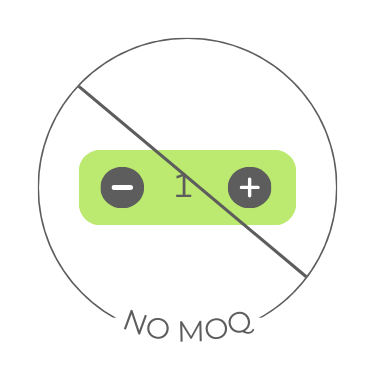Reviewed by: Kacie La
Contents:
Shea butter for hair is one of your best
natural alternatives to store-bought hair care products when you consider that
some of these contain
formaldehyde, a known carcinogen.
Plus,
these commercialised products often address just one or two of your hair
concerns, compared to shea butter’s numerous hair-care
properties—strengthening, protection, moisturising, and even anti-inflammatory
for the scalp.
It’s
also easy to apply, making it a great part of your hair care regimen!
The good news is…
The many benefits of shea
butter for hair are now within your reach. And you can actually DIY your
own shea butter hair mask!
Read on to learn how.
What is Shea Butter?
Shea
butter comes from the oil in the nut kernels of the
Vitellaria paradoxa tree typically found in
West Africa.
Researchers confirm that this natural
ingredient contains Vitamins A and E, palmitic fatty acids, triterpenes that enhance
wound healing, and unsaponifiable fraction containing potent anti-inflammatory and antioxidant properties.

Fast Facts
Main benefits: moisturises, repairs damage, reduces frizz, protects hair, and enhances shine
Hair type: those who want to target hair dryness, dullness, and/or
damage.
How to use: you can have 3 options: as a hair mask, a leave-in
conditioner, or in scalp treatment
When to use: before or after showering, once a week at most
Blends well with: essential oils, coconut oil, aloe vera gel
3 Benefits of Shea Butter for Hair
Because of its rich profile of vitamins and nutrients, shea butter for hair can transform your locks and strands.
1. Deep Moisturisation
Shea
butter’s fatty acid content allows
lipid restoration and
rapid moisture generation
; simply put, these fatty acids add moisture to the
strands, which you can maximi
2. Strengthening Hair
Heat,
humidity, pollution…
These
are all constant threats to your hair!
So,
it definitely needs the extra protection it can get.
Shea
butter’s fatty acids can nourish hair follicles, prevent split ends and
brittleness, and promote overall hair health. In addition, the Vitamin E in
shea butter can protect your hair strands from free radicals and damage,
especially if you use heat tools, such as hair iron and blow dry,
regularly.
3. Reducing Frizz and Enhancing Shine
The
moisturising and strengthening benefits of shea butter for hair
can also promote softer and shinier strands.
Plus,
it can control hair frizz and tame those annoying flyaway strands, more
effectively when applied to dry hair, leaving you with silky smooth hair.
Take
it from Dawn E., one of our customers: “I have only used this for a few weeks
and I cannot believe the difference in my hair… I was never able to brush my
hair after it dried because it would frizz. Now it is not frizzing at all.
Unrefined Organic Shae Butter will be my staple. “

DIY Shea Butter Hair Mask
Let’s take the cat out of the bag. Here’s an easy 4-step shea butter hair mask recipe you can follow.
- Take ¼ cup of shea butter and slightly warm for a lighter consistency.
- Blend a scoop of avocado flesh for 2-4 minutes.
- Add your shea butter to the blender and blend until the mixture smoothens.
- Transfer it to a bowl, apply, and leave for not less than 30 minutes before rinsing.
Additional Ingredients for Specific Hair Needs
Your
DIY shea butter hair mask
allows you to choose and combine other
raw and natural
ingredients
to target specific hair care issues and needs.
Combining
avocado with shea butter
for hair care can address hair damage, dullness, brittleness, hair loss,
and frizz.
And
have we mentioned that shea butter “whips up beautifully with carrier and
essential oils” according to our dear customers?
When paired together, shea butter and lavender or rosemary essential oils can
help repair and strengthen your hair, as well as enhance its shine and improve
hair growth.
Meanwhile,
you can improve your hair moisture levels by adding eggs, coconut oil, or aloe vera gel—also great for dandruff—to your shea
butter hair mask.
3 Ways to Use Shea Butter for Hair
You can use shea butter for your hair in three different ways.
-
As a Leave-In Conditioner or Treatment
Put
a tiny amount of shea butter on your hair—preferably damp or dry—targeting the
ends and dry parts.
-
In a Hair Mask
Apply
shea butter generously to cleansed hair, leave for at least 30 minutes, and
then rise.
-
As a Scalp Treatment
Apply
slightly heated shea butter on your scalp, massage it in circular motions, and
leave it on for at least 10 minutes before rinsing.
You can also use it to make homemade moisturiser cream, hand cream, and even shaving cream. One of our customers, Julie C., “absolutely love[s] this product. I use it to make moisturiser for the face and body, as well as lip balm,” she says.
Tips for Best Results
For best results, combine shea butter with other ingredients to target your specific hair concerns and maximise shea butter’s hair care properties.
Common Mistakes to Avoid
-
Over usage
To
avoid pore clogging, use shea
butter for hair once a week at most or when your hair feels dry or
brittle.
-
Excessive application
If
you have thin hair, avoid using too much shea butter for hair as this can weigh down and
flatten your hair. If you have oily skin, the excess oil may also find its way
to your face, shoulders, and back, causing breakouts.
-
Using the wrong type of shea butter
Know the
difference between the
two types of shea butter
to know which one to purchase based
on your hair care needs or personal preferences.
Unrefined shea butter has the highest quality of properties and has a distinct and strong nutty smell, which one of our customers adore—"It has a beautiful earthy fragrance,” says Jodie E. But we understand that it may not be suitable for all types of formulations, particularly when smell, colour, and texture are a decision factor.
So,
if you want an odourless alternative, you can opt for
Switch to Natural Hair Care Today!
There are many benefits of shea butter for hair given its moisturising, strengthening, protection, and anti-inflammatory properties, which you can get with DIY shea butter hair masks, leave-in conditioners, or scalp treatment.
For optimal results, combine shea butter with other hair care ingredients, know which type you need or prefer, and avoid overusing or excessive application to prevent pore clogging.







